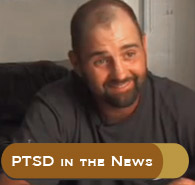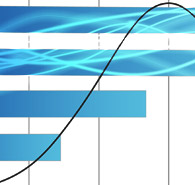Homecoming for Veterans, EEG Institute, and the Salvation Army Bell Shelter have instituted a pilot program to provide neurofeedback therapy to veterans living at the shelter.
Archive for the ‘Veterans’ Category
Stories of Transformation:
Veterans at the Salvation Army Bell Shelter
Friday, November 8th, 2013
Pentagon’s Brain-Powered Videogames Might Treat PTSD
Tuesday, July 3rd, 2012 Soldiers and veterans looking to alleviate the devastating symptoms of post-traumatic stress disorder might soon have a new way to help themselves. Strangely, it involves using their gray matter to control a video game.
Soldiers and veterans looking to alleviate the devastating symptoms of post-traumatic stress disorder might soon have a new way to help themselves. Strangely, it involves using their gray matter to control a video game.
Continue reading Wired article by Katie Drummond at
wired.com
Remediation of PTSD using Infra-Low Frequency Neurofeedback Training
Wednesday, March 7th, 2012 The careers of the scientist/practitioners in the field have undoubtedly had in common the experience of gradually rising expectations about what is possible to achieve in terms of improved self-regulatory capacity and mental functioning with the aid of neurofeedback. One might have expected some plateauing after a while, a firming up of one’s expectations, but the surprises keep coming and they are consistently on the upside. In our own experience, one of the biggest surprises has been the growing effectiveness of neurofeedback with PTSD, along with the related conditions of developmental trauma and the autism spectrum. All of these conditions had seemed so utterly intractable in the past.
The careers of the scientist/practitioners in the field have undoubtedly had in common the experience of gradually rising expectations about what is possible to achieve in terms of improved self-regulatory capacity and mental functioning with the aid of neurofeedback. One might have expected some plateauing after a while, a firming up of one’s expectations, but the surprises keep coming and they are consistently on the upside. In our own experience, one of the biggest surprises has been the growing effectiveness of neurofeedback with PTSD, along with the related conditions of developmental trauma and the autism spectrum. All of these conditions had seemed so utterly intractable in the past.
In this newsletter, the focus on PTSD exists not only for its own sake, but also to serve as the best vehicle for the tackling of larger themes. What sets PTSD apart from our clinical work in general is the concentrated effort that has gone into this area by virtue of the great need among our returning veterans. We have attempted to meet this need through a non-profit entity, Homecoming for Veterans (hc4v.org), which has attracted even international participation among clinicians. As a result of these collective efforts, a large database of clinical results has been gathered that is now available for “data-mining.”
Breaking News on PTSD & Neurofeedback
Monday, June 20th, 2011 Today the web-based newspaper The Daily published a front-page article on Infra-Low Frequency Neurofeedback in application to PTSD. Along with the article there is also a six-minute video that illustrates the training procedure and basic approach. Reporter Katie Drummond did her homework on this topic over a number of months, finally coming out to our office from New York and showing up at our office with a video crew in order to try the training herself and to get acquainted with the principals.
Today the web-based newspaper The Daily published a front-page article on Infra-Low Frequency Neurofeedback in application to PTSD. Along with the article there is also a six-minute video that illustrates the training procedure and basic approach. Reporter Katie Drummond did her homework on this topic over a number of months, finally coming out to our office from New York and showing up at our office with a video crew in order to try the training herself and to get acquainted with the principals.
On Major Nidal Malik Hasan
Monday, November 23rd, 2009 Up to this point, commentary on Major Hasan has had as much to do with us, the observers, as with Hasan himself, given how little we actually know about him. One wants to be careful not to jump to conclusions prematurely. That may also have been at work early on while Major Hasan was working at the Walter Reed Army Medical Center. The question has been raised as to why his colleagues at Walter Reed did not pick up on the various signs of instability and of mental disturbance in Major Hasan during his years there.
Up to this point, commentary on Major Hasan has had as much to do with us, the observers, as with Hasan himself, given how little we actually know about him. One wants to be careful not to jump to conclusions prematurely. That may also have been at work early on while Major Hasan was working at the Walter Reed Army Medical Center. The question has been raised as to why his colleagues at Walter Reed did not pick up on the various signs of instability and of mental disturbance in Major Hasan during his years there.
The professional reluctance to identify Hasan as a problem may very well have been due to the “protective garb” provided him by his status as a psychiatrist. He was one of them. Beyond the simple reluctance to indict a professional colleague, there is also the assumption that such an individual has more resources to “pull himself together” and to conduct his life within acceptable bounds even if he has “issues.” The mental health disciplines have developed from a very rational framework that unsurprisingly places the rational order at the top of our regulatory hierarchy. In the disciplined mind, rationality rules the emotions. The will is unquestionably in charge of our actions.

Clinicians Bring Hope for Veterans by Honoring Those Who Served
Friday, November 11th, 2011We all know this is a huge challenge. According to the Department of Veterans Affairs in June 2010, there were 171,423 deployed Iraq and Afghanistan war veterans diagnosed with PTSD, out of a total of 593,634 patients treated by the VA. But the toll goes beyond just the numbers. Every day we hear stories of vets who are returning home only to struggle with depression and alcohol and drug abuse. These health issues are leading to broken families, homelessness and in far too many cases, suicide.
(more…)
Posted in Application of Neurofeedback, Commentary, Health Care, Neurofeedback, Outreach, PTSD, Veterans | No Comments »